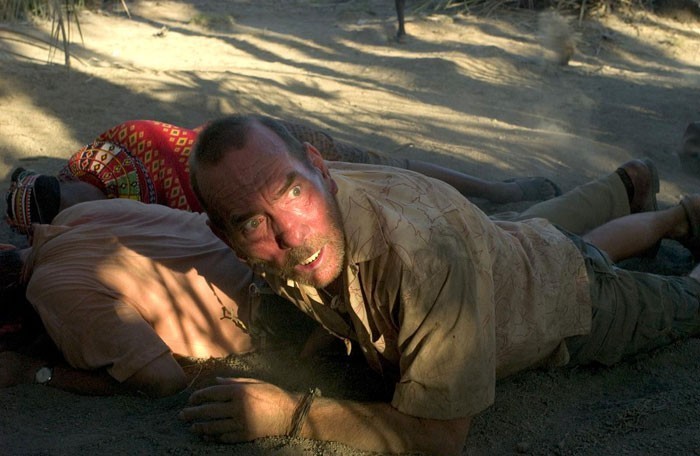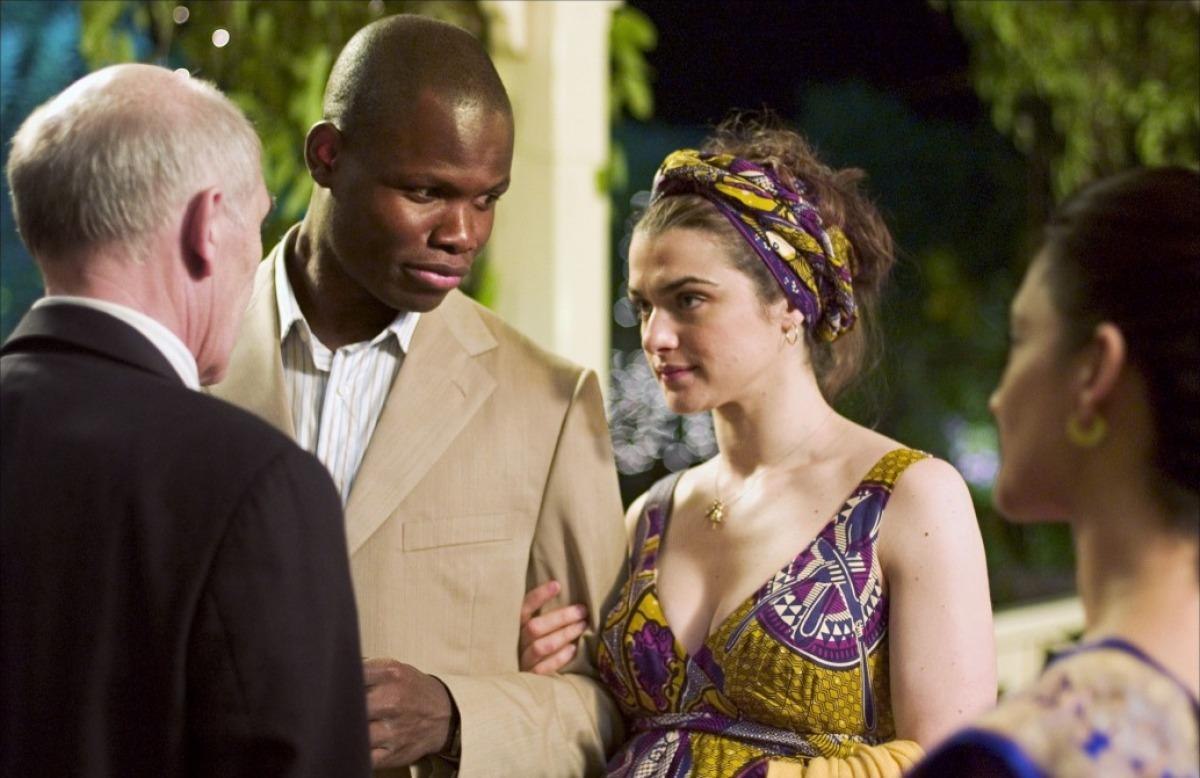The Constant Gardener (2005)

The Constant Gardener (2005) is a thrilling drama directed by Fernando Meirelles, based on the 2001 novel by John le Carré. The screenplay, written by Jeffrey Caine, adapts le Carré’s intricate story about corruption, conspiracy, and betrayal in the pharmaceutical industry. The film follows the journey of a mild-mannered British diplomat, played by Ralph Fiennes, as he uncovers a web of deceit following the mysterious death of his wife, Tessa, portrayed by Rachel Weisz. With its gripping narrative and complex characters, The Constant Gardener is a powerful exploration of love, trust, and the pursuit of justice.
The plot of The Constant Gardener centers around Justin Quayle (Ralph Fiennes), a quiet and reserved British diplomat living in Kenya. His life is turned upside down when his wife, Tessa, a passionate human rights activist, is found dead under suspicious circumstances. As Justin delves deeper into the investigation, he discovers that Tessa’s death is linked to a pharmaceutical company conducting unethical drug trials in Africa. As he uncovers the shocking truth, Justin is forced to confront the powerful forces behind the conspiracy, putting his life at great risk. The film is an emotional and suspenseful journey that explores both personal grief and global corruption.
One of the most compelling aspects of The Constant Gardener is the character development. Justin starts the film as a passive and somewhat detached man, more focused on gardening than engaging with the world around him. However, his love for Tessa and his quest for answers gradually transform him into a determined and courageous individual. Ralph Fiennes delivers an exceptional performance, capturing Justin’s inner turmoil and his emotional awakening as he becomes deeply involved in his wife’s cause. Tessa’s character, portrayed by Rachel Weisz, is equally compelling. Weisz’s performance adds depth and conviction to Tessa’s role as a fearless advocate for justice, and her impact on Justin is felt throughout the film, even after her death.
The film’s portrayal of the pharmaceutical industry is another key element of its power. The Constant Gardener exposes the dark side of corporate greed and exploitation, especially in developing countries where vulnerable populations are used as testing grounds for unapproved drugs. The conspiracy that Justin uncovers highlights the ruthless lengths to which powerful corporations will go to cover up their wrongdoings. The film serves as a poignant critique of corporate malpractice and the moral corruption that often accompanies unchecked power.

Visually, The Constant Gardener is stunning. The cinematography, handled by César Charlone, captures the stark beauty of Kenya’s landscapes while also conveying the grimness of the story’s underlying themes. The contrast between the vibrant, natural beauty of the environment and the dark, disturbing truths Justin uncovers creates a powerful visual metaphor for the film’s central conflict—between the surface beauty of the world and the hidden ugliness beneath. The film’s realistic and immersive setting enhances the emotional impact of the story, making the audience feel as though they are walking alongside the characters in their dangerous journey.

The themes of love, loss, and justice are deeply intertwined in The Constant Gardener. The film examines how personal relationships can become a catalyst for larger, more significant change. Justin’s love for Tessa motivates him to expose the truth, and in doing so, he not only seeks justice for his wife but also attempts to right a global wrong. The film presents a world where love can drive people to act courageously and selflessly, even in the face of overwhelming adversity. It is a powerful reminder that even in the darkest circumstances, individuals can make a difference.

In conclusion, The Constant Gardener (2005) is a thought-provoking and emotionally charged film that skillfully combines a personal story of love and loss with a larger commentary on corporate corruption and social justice. Directed by Fernando Meirelles and based on John le Carré’s novel, the film delivers strong performances, particularly by Ralph Fiennes and Rachel Weisz, and presents a gripping narrative that keeps the audience engaged. Through its exploration of personal and global issues, The Constant Gardener offers a poignant reflection on the power of love and the lengths to which individuals will go to uncover the truth.











